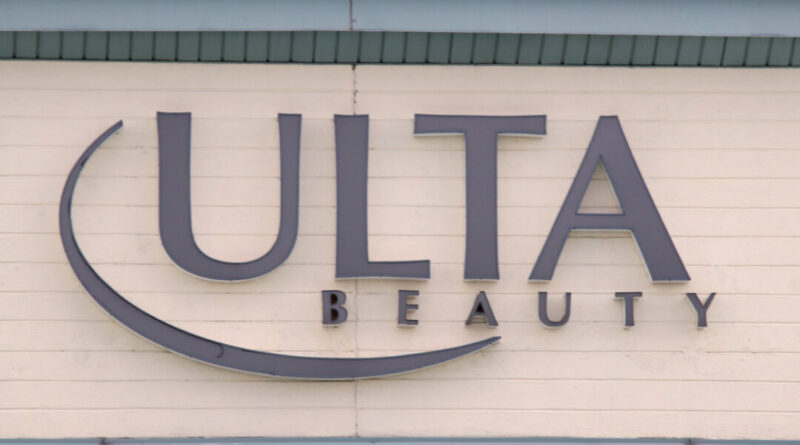Ulta Achieves Strong Earnings in Challenging Retail Environment
Net sales were $2.53 billion, up $2.49 billion from a year ago. In addition, same-store sales (sales for stores open at least 14 months and e-commerce sales) rose 0.6 percent, driven by a 0.5 percent increase in transactions and a 0.1 percent increase in the average ticket.
Ulta Beauty CEO Dave Kimbell credited the company’s performance to favorable industry sales trends, effective financial execution, and the right positioning in the beauty product category.
“The Ulta Beauty team delivered better-than-expected sales and profitability reflecting improved sales trends and strong financial discipline,” he said in a statement accompanying the release of the third-quarter financial results.
“I am proud of the progress we’ve made and encouraged by early signs that our efforts to reinforce our market position and drive improved performance are gaining traction. ”
In addition, Kimbell gave an upbeat assessment for the rest of the year. “As we look to the remainder of fiscal 2024, we are focused on executing with excellence across our key initiatives to deliver in a dynamic environment,” he said.
“We remain confident that our model and strategies will drive long-term profitable growth and share leadership by enhancing our position as the destination for beauty enthusiasts for a lifetime.”
Michael Ashley Schulman, chartered financial analyst and chief investment officer at Running Point Capital Advisors, praised for the company’s performance.
“Even with inflation, the beauty category continues to be an affordable luxury and feel-good offering despite a challenging climate,” he told The Epoch Times. “Ulta Beauty’s ability to exceed Wall Street expectations highlights CEO Dave Kimbell’s focus on digital innovation, exclusive product launches, and in-store experiences as well as the resilience of the beauty sector despite inflationary pressures and heightened competition.”
Ulta Beauty has been in the right place at the right time and in the right product category.
Arnold thinks Ulta has done its homework, investing time and resources to develop products for consumers for all, including younger generations.
“Teens and tweens have been flocking to their local malls to try out products from brands like Drunk Elephant, driven, in part, by the rise of #BeautyTok, where influencers on TikTok post their makeup and skincare routines,” Arnold added.
Wall Street was pleased with Ulta’s third-quarter financial performance, sending its shares 9 percent higher on Dec. 6, to $428.
Since economist and noted investor Benjamin Graham introduced the concept of intrinsic value, equity analysts and finance experts have used it to estimate the worth of publicly traded companies’ shares independently from the market.
Stocks that trade above their intrinsic value are overvalued, while stocks trading below their intrinsic values are undervalued, as is currently the case with Ulta’s stock.
Still, intrinsic value calculation models rely on assumptions about the company’s future growth, so investors should interpret this valuation metric cautiously.
Meanwhile, investors should pay close attention to Ulta’s economic value added (EVA)—a measure of how effectively management allocates capital to profitable opportunities.
Gurufocus.com estimates Ulta’s current EVA to be 33.75 percent, up 25 percent from a year earlier.
A positive EV indicates that the company manages other people’s money effectively—it invests the money in business opportunities that yield a higher return (ROIC) than the weighted cost of capital (WACC).
A low valuation and a high EVA suggest that Ulta’s comeback is for real, with better days ahead for its stockholders.
However, John Zolidis of Quo Vadis Capital, who attended Ulta’s October analyst day in Chicago, is skeptical about the company’s valuation.
“Looking at ULTA shares, we find it interesting that the price is now above pre-analyst day levels given that estimates came down and that Berkshire Hathaway subsequently liquidated its position,” he wrote in a recent research note. “The current multiple (17.5x P/E and 11x EV/ EBITDA vs. FY25 consensus) looks quite full relative to the current negative comp trend, margin pressure, and two years of expected earnings contraction.”
Zolidis observes that consumers continue spending money on skincare, bath, and fragrance products, partially offsetting negative comps and market share loss in makeup.
However, he is concerned about the growing competition and promotional activity across the company’s assortments. “We also expect SG&A deleverage,” he added. SG&A deleverage refers to a situation where a company’s selling, general, and administrative expenses increase at a faster rate than its revenue or sales, leading to a decline in profitability.
“Net, we could see the company slightly raised its outlook (after recently cutting it), but we do not expect that the general dynamic of the business has inflected in a way that would justify a re-rating of the shares beyond what already appears quite generous,” Zolidis said.





